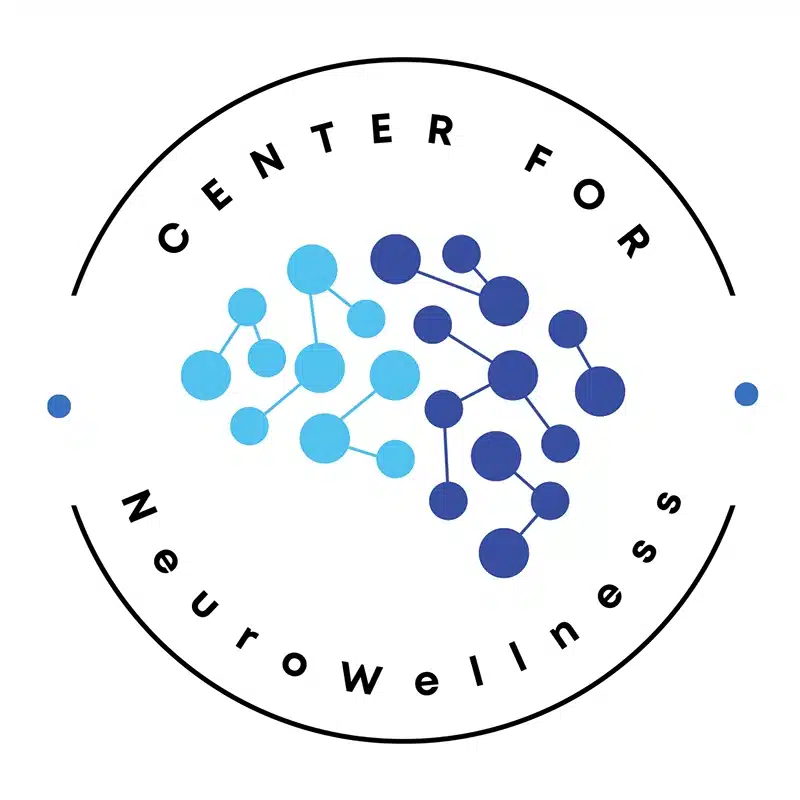Center for NeuroWellness Neuropsychology Post-Doctoral Fellowship Program
PROGRAM AT A GLANCE
- Required Application Materials: To apply, you must submit a statement of purpose, curriculum vitae (CV), three letters of reference, two sample case reports, and transcripts from your graduate school.
- Interview Location: Interviews for this program will be conducted virtually or in person, at the Center for NeuroWellness.
- Program Guidelines: The program adheres to the Houston Conference Guidelines and APPCN requirements. It requires a two-year fellowship commitment.
- Clinical Focus: This fellowship program primarily focuses on adult neuropsychology training, with opportunities to work with child and adolescent populations available upon request.
- Training Setting: Fellows will receive training within a general outpatient private practice.
- Didactic Training: Didactic training is available twice a week at the Center for NeuroWellness and at various other locations, including hospital psychiatry and neurology grand rounds, as well as external clinical training.
- Stipend: The program offers a salary consistent with NIH stipend guidelines, with a projected 2024 salary of $53,600.
Center for NeuroWellness Neuropsychology Post-Doctoral Fellowship Program
PROGRAM OVERVIEW
Welcome to the Center for NeuroWellness Neuropsychology Post-Doctoral Fellowship Program. We’re delighted to introduce our comprehensive training program, preparing you for a successful career in neuropsychology. With a central focus on clinical practice, research, and community engagement, our program is guided by the scientist-practitioner tradition and aligns with the Houston Conference guidelines. Located in Red Bank and Brick, New Jersey, the Center for NeuroWellness is a leading institution dedicated to promoting neurological health and enhancing the well-being of individuals with neurological conditions. Our state-of-the-art facilities, extensive resources, and a dedicated professional team combine to make a positive impact in the field of neuropsychology. Our mission at the Center for NeuroWellness is to provide rigorous, hands-on training to post-doctoral fellows, equipping them with the skills, knowledge, and ethical foundations needed to excel in the multifaceted field of neuropsychology. Our commitment extends to promoting diversity, equity, and inclusion, and we offer personalized instruction to one to two fellows each year under the direction of Dr. Gina Falcone, PhD.
Our program is located near Jersey Shore University Medical Center, a Level II trauma center in New Jersey. We receive referrals from various sources within outpatient medical and allied professional practices as well as within hospitals and medical centers in Monmouth, Ocean, and nearby counties. Referrals come from departments such as Neurology, Neurosurgery, Internal Medicine, Oncology, Psychiatry, and Family Practice. Our neuropsychology patients are mainly adults, with some children. The majority of pediatric patients are seen within our concussion and learning disability programs.
The Center for NeuroWellness excels in assessing neuropsychological conditions related to concussion, stroke, Alzheimer’s disease, traumatic brain injury, CNS tumors, epilepsy, ALS, Parkinson’s disease, metabolic/medical conditions, and forensic evaluations. Neuropsychological assessment is at the heart of our fellowship program. Fellows usually assess one to two patients daily. Our core battery of assessments takes about three to five hours, and we use additional instruments based on the referral question, patient’s condition, core battery findings, and other factors. Our assessment reports vary in length depending on the referral question and patient needs, typically spanning one to two pages.
FACULTY
CNW Director: Kristine Keane, Psy.D., Sports and Clinical Psychology, Clinical Director of the Concussion Program at Hackensack Meridian Health Neuroscience Concussion Program, Associate Professor at HMH School of Medicine at Seton Hall University, Specialization in Concussion, TBI, Brain Health, and neurodegenerative disease
Program Director: Gina Falcone, Ph.D. Clinical Neuropsychology, Specialization in Memory Loss and Dementias, Aging, Neurodegenerative Disease, Stroke, Parkinsons, Cognitive Rehabilition, MRI and Mindfulness
Faculty: Kathleen Boss, Psy.D. Clinical Psychologist Specialization in Learning Disability Assessment, ADHD, and Psychological Assessment of Mood and Behavioral disorders
PROGRAM GOALS
– Gain proficiency in the principles and techniques of neuropsychological assessment, encompassing the standardized measurement of perception, attention, intellect, memory, speech and language, reasoning, decision-making, and personality.
– Develop an understanding of how neurological and psychiatric diseases manifest neuropsychologically, including conditions like agnosia, amnesia, aphasia, personality and social conduct disorders, and dementia.
– Learn to recognize the connections between underlying medical conditions (e.g., Alzheimer’s disease, Parkinson’s disease, stroke, trauma) and the resulting neuropsychological clinical presentations.
– Acquire the skills to provide high-quality neuropsychological services to a diverse patient population, including effective test selection, report writing, clinical interviewing, verbal feedback, and supervision of psychometricians and graduate students.
– Develop the ability to plan and conduct research in the fields of clinical neuropsychology and cognitive neuroscience.
– Gain knowledge of neuroscience research methods, with a particular focus on techniques related to lesion studies and structural and functional imaging at the systems level, such as CT, MRI, PET, and fMRI.
– Cultivate ethical and responsible behavior in all professional activities, including interactions with patients, colleagues, staff, the general public, and the conduct of research.
DESCRIPTION OF CNW OUTPATIENT SERVICES:
At the Center for NeuroWellness, our fellows enjoy a supportive environment that enhances their professional development. We provide administrative services, access to state of the art electronic health record (EHR) systems, as well as essential professional and scientific software. Additionally, we offer various amenities to foster professional growth. Fellows are encouraged to attend relevant national conferences, including annual meetings hosted by esteemed organizations like the National Academy of Neuropsychology and the American Academy of Clinical Neuropsychology. These events provide valuable networking and learning opportunities.
The Center for NeuroWellness features multiple examination rooms equipped with extensive assessment instruments, technicians’ offices, therapy spaces, computerized testing labs, and comfortable waiting rooms. To assist with assessments, we have a dedicated team, including one full-time technician and four part-time technicians. Fellows also have access to private offices. We offer a wide range of neuropsychological services, from brief consultations that may last as little as 30 minutes to comprehensive evaluations that can span up to 10 hours of test administration. To streamline data management, we employ an integrated computer system designed for neuropsychological assessments. Our detailed neuropsychological evaluations serve as the foundation for systematic, individualized treatment programs that draw from insights in cognitive neuroscience, psychotherapy, and educational research. We empower neurological patients, their families, and caregivers with training in behavioral compensatory strategies, cognitive retraining programs, and task-specific procedural learning techniques. Our goal is to promote cognitive-behavioral competencies, functional independence, and emotional and physical well-being. At CNW, we are committed to developing and implementing psychological and neuropsychological interventions that aid in the recovery and rehabilitation of cognitive, behavioral, and emotional disturbances. Our interventions and counseling services are available to patients with a wide range of neurological conditions, including sleep disorders, movement disorders, pain management, and cognitive decline.
FELLOWSHIP EXPERIENCES
The following outlines the core experiences during our two-year postdoctoral fellowship program in clinical neuropsychology. These experiences are categorized into three key areas: clinical service, research, and education. Our program adheres to the guidelines set forth by the Houston Conference. It is designed for ambitious postdoctoral residents who aspire to build a successful career in the field of clinical neuropsychology. Fellows undergo performance evaluations conducted by our faculty every six months. These evaluations are instrumental in providing valuable feedback, helping fellows understand their strengths and areas for improvement, and customizing their training to best meet their needs and interests.
A. First Year Fellow Experiences
1. Clinical Activities: In the first year, approximately 80% of your time will be dedicated to clinical activities. During this period, first-year fellows typically see 1-2 patients each day. Initially, fellows directly engage with patients under the guidance of the program director. As they become proficient in neuropsychological test administration and scoring, fellows are trained to conduct comprehensive assessments. The focus is primarily on diagnostic work. Each case is individually supervised by a clinical faculty member, with group supervision/case consultation as needed. Fellows are trained to identify core neuropsychological syndromes related to various neurological conditions, produce effective and concise reports, and assess pertinent demographic, historical, medical, and psychological information to develop a neuropsychological diagnosis. Once proficiency in formal testing is demonstrated, fellows assume responsibilities such as clinical interviewing, test selection, psychometrician supervision, report writing, and providing verbal feedback. This is done in consultation with and under the guidance of faculty neuropsychologists. Fellows conduct evaluations on a diverse outpatient population with various conditions, including neuropsychiatric disorders, dementia, traumatic brain injury, chronic health conditions, neurological disorders, and learning disorders/ADHD. Referral questions are varied and may include differential diagnosis, treatment planning, capacity assessment, and academic accommodations. Our evaluation approach emphasizes individual supervision, hypothesis testing, concise report writing, and clear verbal communication of results to patients, treatment teams, and referring providers.
2. Research Opportunities: Fellows have opportunities to participate in ongoing research projects or develop their own research initiatives.
3. Educational Opportunities: Early educational experiences include consulting with faculty on clinical cases, attending Grand Rounds, and external lectures. At the beginning of your training, a core set of readings is provided to establish fundamental knowledge and principles related to clinical neuropsychology, neuropsychological syndromes, common neurologic diseases, and contemporary issues in professional clinical neuropsychology. Readings are tailored to your individual interests, strengths, and educational needs. Specific didactic classes or experiences can be arranged based on your interests and educational requirements.
B. Second-Year Fellow Experiences: The second year of the fellowship is considered a continuation of the first, and many of the same activities are continued. However, in general, there is a greater emphasis on more complex cases, and the addition of supervision of technicians and associate counselors in clinical work. Greater independence in clinical activities is fostered.
1. Clinical: Depending on the career goals of the individual, the clinical appointment is approximately 60-80% time during the second year, with the possibility of a focus on specific areas of interest (e.g., dementia, stroke, epilepsy, TBI). Also, opportunities for involvement in medical-legal assessment cases are provided.
2. Research: For fellows with a strong research interest, background and career interests, research activity may have an increased emphasis in the second year, comprising a greater proportion of the fellow’s time.
3. Education: Ongoing educational activities include attendance at HMH Neurology and Psychiatry Grand Rounds, numerous lectures, and seminars.
C. Other Special Training Opportunities
1. Sports Concussion Assessment and Rehabilitation: Fellows will have the privilege of observing and participating in interventions delivered at a sports medicine clinic. This experience includes gaining insights into the assessment and management of sports-related concussions within the sports medicine domain, as well as understanding the principles of physical rehabilitation for athletes and students. This multidisciplinary team comprises experts from fields such as psychiatry, pharmacology, counseling, physical therapy, occupational therapy, and neuropsychology.
2. Learning Disability and Autism Evaluation: This opportunity offers fellows the chance to engage in both pediatric and adult assessments for individuals with specific neurodevelopmental disorders. Fellows will actively participate in the entire patient journey, beginning with the initial psychological assessment, proceeding to specialized achievement and neurodevelopmental testing, and concluding with follow-up consultations and care.
SALARY AND BENEFITS: The salary is 53,600.00 annually. Health insurance is employer sponsored and interested candidates are encouraged to correspond with Departmental Administrators regarding the specifics of the insurance benefits. Vacations, sick leave, and maternity/paternity leaves are consistent with the NJ policy and currently include 2 weeks of annual leave.
APPLICATION PROCEDURE
The application process includes submission of the following components: cover letter; curriculum vitae; three letters of reference; two sample case reports; and graduate school transcripts. Materials should be submitted online through email at mhalk@centerforneurowellness.com. Qualified applicants are notified to schedule virtual or in person interviews.
Thank you for considering the Center for NeuroWellness Neuropsychology Post-Doctoral Fellowship Program. We look forward to receiving your application and welcoming the next generation of neuropsychologists who will make a meaningful impact in the field.


